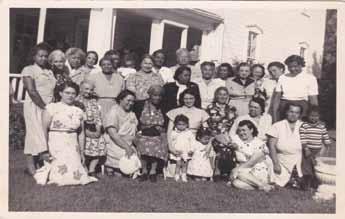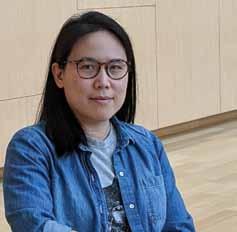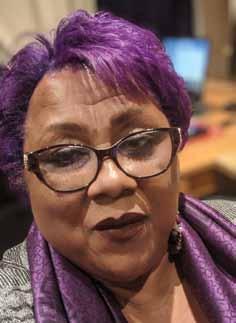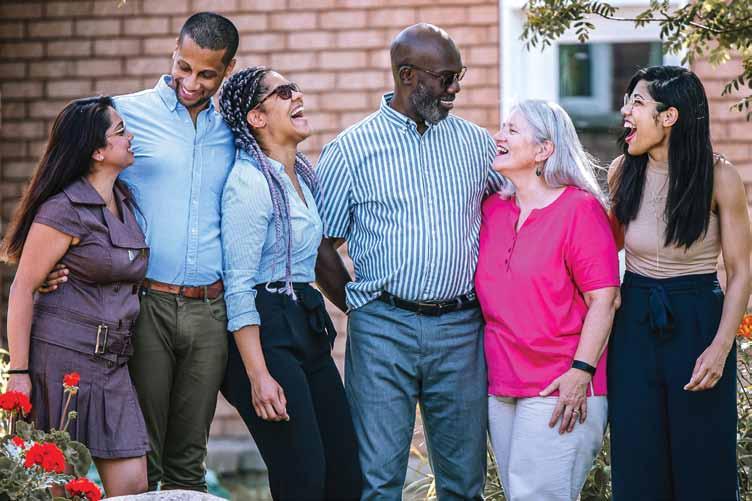
9 minute read
Kairos Action
No one is scary
by Laura Matthews
Advertisement
Laura is the program and administrative coordinator for Baptist Women and has developed and run their Women’s Conferences since 2016. When I heard the news of George Floyd dying because of police brutality, I was paralysed by the inhumanity of his death as he pleaded for his life. I know Jesus wept that day, while many others couldn’t look away. I felt an internal earthquake cracking me open at every seam. It was a true kairos moment—a moment where God broke into my world with no option to deny His presence.
Reminded again that racism is alive, I became deeply aware that our society is built on unjust systems of oppression—largely unchallenged by “well-intentioned” White people like myself. Like Saul, scales fell from my eyes as I began to recognize my complicity in these systems. I hadn’t fully recognized the responsibility that comes with my privilege.
I hid behind the fact that I have many friends who are Black, Indigenous or People of Colour (BIPOC), yet I didn’t understand the action required of me to ensure that their lives are equally valued.
I remained ignorant of policies that serve whiteness.
I’ve often been silent because of discomfort, rather than taking a stand.
I spoke with a Black friend who lives in the Greater Toronto Area. She has two young boys. She was hurting and scared. “At what point do my children become scary to society?” she asked me. “They’re cute now, but soon they’ll be profiled and targeted.”
We’re not immune to racism in Canada. It’s not enough to be nice, live or work in diverse settings, or consider yourself not to be racist. It is vital for us to actively work towards becoming anti-racist. How else will systemic change occur?
In Uptick Baptist Women, we teach Lifeshapes, part of author Mike Breen’s teaching on discipleship. The Kairos Learning Circle invites us to respond to God by repenting and believing. This shape is often my compass, and it gave me a framework to act instead of stagnate.
Repent invites us to observe, reflect and discuss. I observed my feelings towards racial injustice, reflected and became curious about the root causes of systemic
racism, and had discussions and prayer with my husband.
Believe invites us to plan, account and act. And so I planned to practice anti-racist action by doing something intentional each day. I set up a WhatsApp group for the month of June called action accountability to grow your racial justice practice and invited anyone to join. It quickly grew to over 40 people. I suggested a daily action, ranging from reading articles to writing government officials to advocate for change. For accountability, we’d simply write in the chat “day __ done.” This daily rhythm became essential in growing my habits to sustain anti-racist action.
As a White person, I cannot be blind to my privilege. And, as Christians, we cannot live indifferently to the racial injustice we encounter. Perhaps the learning circle is a framework that will support your own journey in exploring anti-racism. God certainly met me in the process, helping me to repent and continuing to sustain me for the ongoing work.
Laura Matthews
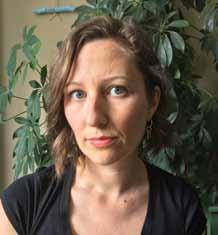
So w here do w e begin?
• Commit to educating yourself, ongoing. • Identify your personal sphere of influence and use it. Have conversations with family and friends about how to change. • Write a letter to your local government about policy change. • Donate to organizations with clear anti-racist practices. • Speak up when you see racism. • Read books by BIPOC authors and diversify your children’s books, too. • Support businesses owned and operated by BIPOC people.
These small actions might seem insignificant, but they accumulate and make a difference—like how Jesus conducted His ministry on a personal and communal level; teaching, loving, healing and acting against oppressive powers one scenario at a time. He was for the marginalized and oppressed, always. Are we? May our actions be the answer.
CH OSEN | HOLY | CALL
Precious in His sight ED
But you are a chosen people, a royal priesthood, a holy nation, a people belonging to God, that you may declare the praises of him who called you out of darkness into his wonderful light. “ 1 Peter 2:9
Linda Ellsworth
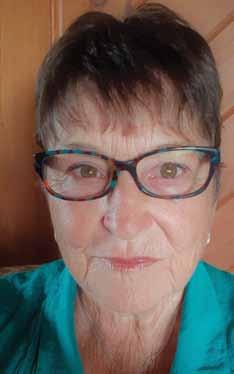
by Linda Ellsworth
Linda is the member care coordinator for Christian Camping International, Canada. Over the past several months , we have been overwhelmed in the media with the plight of those suffering the injustice of systemic racism.
It is easy to be caught up in the call to action and solidarity without considering the biblical root of the issues revealed. Racism is only a part of the larger picture—that of prejudice.
Here’s a definition of prejudice: A preconceived opinion, either negative or positive, regarding a person, place, or thing; not based on reason or actual experience.
In light of this definition, do we not all succumb to that internal and often unconscious bias in some form, every day of our lives?
What does God have to say about prejudice?
Hagar and the Desert Springs READ Genesis 16 What was Hagar’s ethnic background? _________________________ _________________________ _________________________ Would she have looked like Sarai? _________________________ _________________________ _________________________ What was her position in Abram’s household? _________________________ _________________________ _________________________ What was the situation that altered her position? _________________________ _________________________ _________________________ With the change in status, describe the change in Hagar’s attitude. _________________________ _________________________ _________________________ Isn’t it interesting that the one who suffered initial injustice, was quick to return it when the tables turned?
As a result of the change in Hagar’s attitude, let’s look at the events that follow.
Fleeing from Sarai’s abuse, Hagar ends up in the wilderness beside a small stream. Alone. Afraid. And here God does an amazing thing! Describe this encounter in the wilderness: _________________________ _________________________ _________________________
Despite her change in attitude, God saw her—Hagar—the woman of Egypt. The woman of colour. The woman pregnant, alone, and
afraid. And her Creator God spoke! His promise to her? _________________________ _________________________ _________________________ His requirement of her? _________________________ _________________________ _________________________ The sign of that promise? (16:13-14) _________________________ _________________________ _________________________ The fulfillment of that promise? (16:15-16) _________________________ _________________________ _________________________ Hagar. She who came face-to-face with “The Living One Who Sees Me.” Remembered in her plight to this day. Yet this is not the end of the story!
Hagar –Well Provided READ Geneses 21:8-21 Once again God SEES and provides for Hagar and Ishmael.
Inward emotions often prompt outward actions. What do you think prompted Sarah’s actions at this point? _________________________ _________________________ _________________________
Why did God promise Abraham that Hagar would be cared for? (verses12-13) _________________________ _________________________ _________________________ Once again, Hagar finds herself in the wilderness, a victim of unjust treatment.
Describe her ordeal, as she and her child face certain death. _________________________ _________________________ _________________________
Recall that Hagar’s response to Sarah had been unkind and unjust in the past. Now take a close look at God’s response to this situation. (verses 16-17)
Hagar wept, but God responded to the cries of _________________________ _________________________ _________________________ And the God-Who-Sees-Me provided a well, and the promise of a great nation!
The Well of Living Water —A God-Ordained Meeting READ John 4 Travelling from Judea to Galilee, Jesus HAD to go through _________________________ _________________________ _________________________
This was unheard of because the Jews ___________________ the Samaritans. His timing was perfect: right around ____________________ _________________________. He arranged to be alone at the well, by sending _____________ _________________________. Why was this situation so perfectly arranged by God? _________________________ _________________________ _________________________ Describe what is known about this Samaritan woman and then deduce: (e.g. Why she would be alone, drawing water at noon—in the hottest part of the day). _________________________ _________________________ _________________________ Jesus met her where she was and asked her for her help. He then offered her a solution to her situation—being an outcast. What was His solution? _________________________ _________________________ _________________________ Why was the thought of “living water”—which would allow her to never be thirsty again, of such importance to her, in her life situation? (see verse 15) _________________________ _________________________ _________________________ How does Jesus confront her regarding her sin? (verses 16-19) _________________________ _________________________ _________________________ In their ensuing conversation, the woman has a very politically motivated religious debate with Jesus. Describe the discussion which culminates with Jesus’ amazing conclusion in verse 26. _________________________ _________________________ _________________________ Jesus met this woman at the place of her need.
Jesus respected her as a person
and engaged her in conversation when no one else would.
Jesus acknowledged her socioeconomic status, and still referred to her as “dear woman.”
In verses 39-42, Jesus revealed His truth to her, resulting in _________________________ _________________________ _________________________
Where even His disciples would have shown prejudice toward this woman, had they had the nerve, Christ showed only respect, concern, and care.
Let’s review that definition of prejudice then consider these two women who were loved and cared for by their Creator-God.
The basis of prejudice? Sin. The ONLY answer? The God who sees us, and who, without prejudice, and despite our egotistical bent toward judgment, saw fit to rescue us from the curse of self and sin; who chose to sacrifice Himself to redeem us; whose actions bring glory to Himself, and ushers in a new vision of His creation in us.
The only answer to external prejudice is through the internal change wrought by the Spirit of God in us. He is the God who sees us, loves us as we are and chooses to shape us for His purposes in the world.
The Transforming Power of Love READ Romans 12:11-21 Paul gives us clear direction regarding the outworking of the spiritual transformation God creates in us at the moment we meet Him face to face and claim His redeeming work in our lives.
Romans 12:1 says: “And so, dear brothers and sisters, I plead with you to give your bodies to God because of all He has done for you.”
What exactly does this mean for us in relation to those around us . . . those toward whom we may feel estranged or even antagonistic? Those who may appear, act, think differently than we do? Those who have a different socio-economic status? Those who may insult or persecute us?
Paul gives approximately 25 directives in verses 11-21. Number and state them. Use them as your life guide to loving all people. See each other in the same way as God does—the God who sees you!
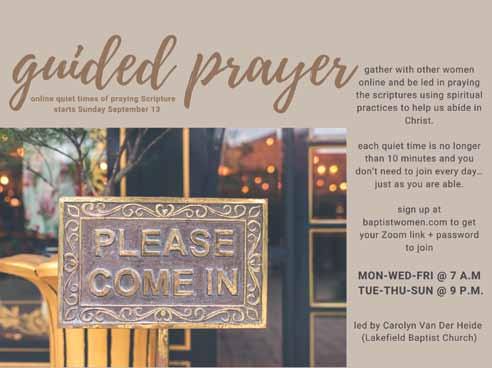
_________________________ _________________________ _________________________ _________________________ _________________________ _________________________ _________________________ _________________________ _________________________ _________________________ _________________________ _________________________ _________________________ _________________________ _________________________ _________________________ _________________________ _________________________ _________________________ _________________________ To conclude this study, allow the Spirit of God to open your heart as you watch the YouTube music video The God Who Sees by Kathy Lee Gifford and Nicole C. Mullen.

